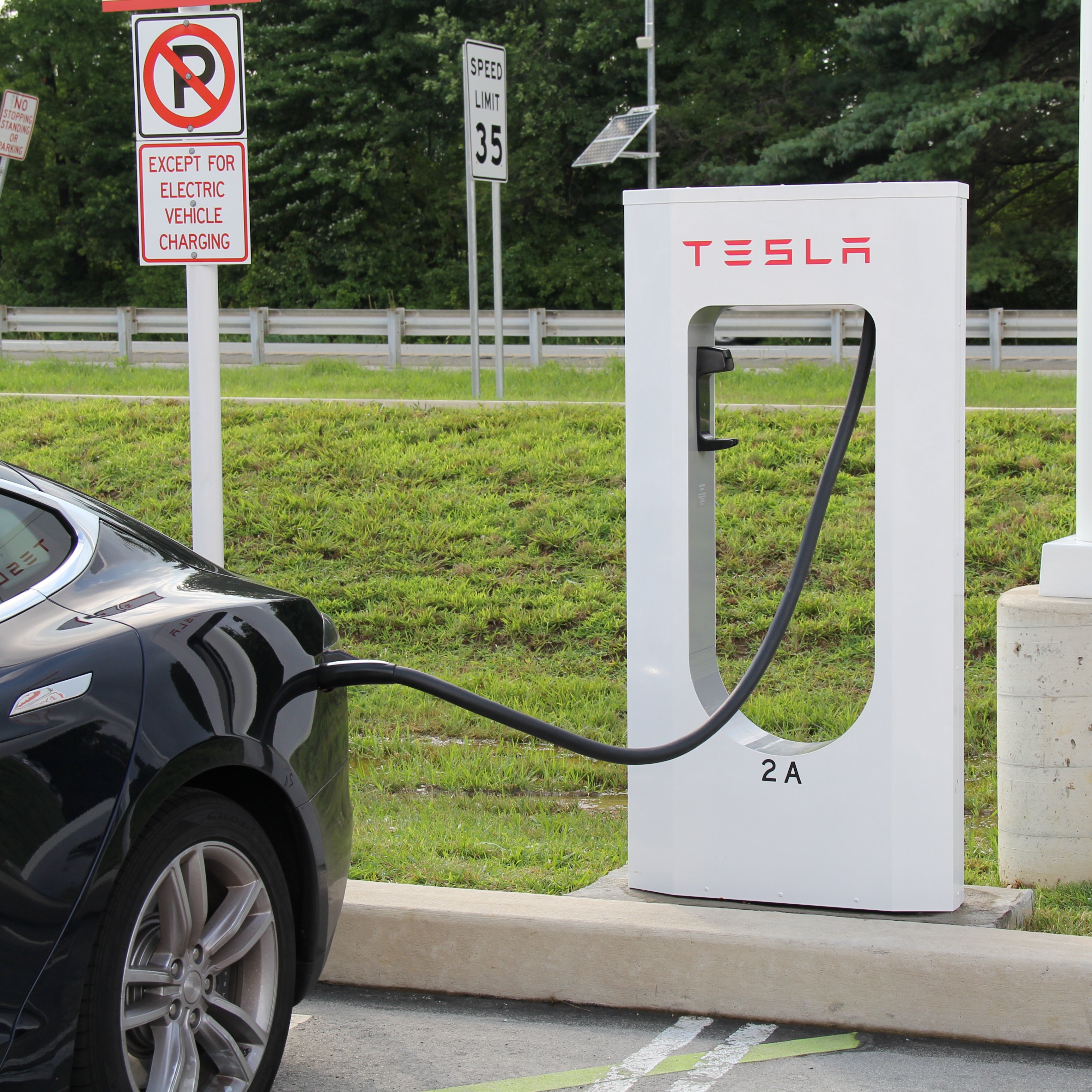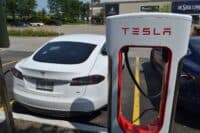

Sometimes real news is almost more entertaining than fiction. If you thought that Tesla Motors Inc. (NASDAQ: TSLA) just was not profitable enough, imagine what happens when you combine a money-losing solar installation finance operation to it. The Tesla blog has announced that Tesla is offering to acquire SolarCity Corp. (NASDAQ: SCTY).
Investors might think this offering is out of left field, but it is important to understand that Elon Musk is behind both companies. This may end up being one of those instances in which a visionary CEO may get to do whatever they want. If successful, Tesla will move from a car company further into being a power company.
After launching Tesla Energy in March 2015, the Powerwall and Powerpack offerings, the company is featuring this as marrying renewable batteries to solar energy. The deal is being proposed as an all-stock transaction.
Again, keep in mind that Elon Musk is behind both companies here.
The claim of the purchases is that this would make Tesla the only vertically integrated energy player with end-to-end clean energy products. Another aim here is to expand Tesla’s addressable market more than either company could do on its own, which could maximize and build on the core competencies of each company. Additional promises about what the company would be able to achieve:
We would be able to provide the best possible installation service for all of our clean energy products. SolarCity is the best at installing solar panel systems, and that expertise translates seamlessly to the installation of Powerwalls and charging systems for Tesla vehicles.
Culturally, this is a great fit. Both companies are driven by a mission of sustainability, innovation, and overcoming any challenges that stand in the way of progress.
We believe that the possibilities for product, service and operational synergies would be substantial, and that a combination would allow our companies to build on our respective core competencies and remain at the forefront of delivering innovative approaches for sustainable transportation and energy. We believe that a combination would generate significant benefits for stockholders, customers and employees of both Tesla and SolarCity.
Again, keep in mind that Elon Musk is behind both companies. And yes, he owns a lot of each stock and sits one the board of each company. The SolarCity board of directors page says:
Elon Musk is the chairman and principal shareholder of SolarCity, the CEO and Product Architect of Tesla Motors and the CEO/CTO of Space Exploration Technologies (SpaceX).
The offering letter lays out a pre-reaction share price of $26.50 to $28.50 per share. Key portions of Tesla’s offering letter said:
We are pleased to submit to you and the SolarCity board of directors a proposal to acquire all of the outstanding shares of common stock of SolarCity in exchange for Tesla common shares. Subject to completing due diligence, we propose an exchange ratio of 0.122x to 0.131x shares of Tesla common stock for each share of SolarCity common stock. This proposal represents a value of $26.50 to $28.50 per share, or a premium of approximately 21% to 30% over the closing price of SolarCity’s shares, based on today’s closing price of SolarCity’s shares and the 5-day volume weighted average price of Tesla shares. We believe that our proposal offers fair and compelling value for SolarCity and its stockholders, while also giving SolarCity’s stockholders the opportunity to receive Tesla common stock at a premium exchange ratio and the opportunity to participate in the success of the combined company through their ongoing ownership of Tesla stock.
Our proposal is subject to the satisfactory completion of due diligence, the negotiation of mutually agreeable definitive transaction documents, and final approval by the Tesla board. While a transaction would be further subject to customary and usual closing conditions, we believe that Tesla is well positioned to negotiate and complete the transaction in an expedited manner. We do not anticipate significant regulatory or other obstacles in consummating a mutually beneficial transaction promptly.
In light of Elon Musk’s SEC disclosure obligations in his individual capacity as a stockholder of SolarCity this proposal will be publicly disclosed, but Tesla’s intention is to proceed only on a friendly basis.
One more thing to keep in mind here is that the 2015 revenue for SolarCity was $399.6 million, with an operating loss of $647.8 million. Tesla’s revenue was $4.05 billion in 2015, and its operating loss was $716.6 million. Now consider that Thomson First Call expects losses to continue as far as we can see for SolarCity.
It is common to see the shares of a buyer fall and the shares of the target rise upon the announcement of a deal. That is what was seen after the news break:
- Tesla shares were last seen down 8.25% at $201.25, after closing at $219.61. Its consensus analyst price target is $264.75 and its 52-week trading range is $141.05 to $286.65.
- SolarCity shares were up 22% at $25.93, after closing down 3.1% at $21.19. It has a consensus price target of $29.41 and has a 52-week range of $16.31 to $61.72.
Again (and no, not that Elon Musk is in charge here), sometimes real news is more entertaining than fiction.
Essential Tips for Investing: Sponsored
A financial advisor can help you understand the advantages and disadvantages of investment properties. Finding a qualified financial advisor doesn’t have to be hard. SmartAsset’s free tool matches you with up to three financial advisors who serve your area, and you can interview your advisor matches at no cost to decide which one is right for you. If you’re ready to find an advisor who can help you achieve your financial goals, get started now.
Investing in real estate can diversify your portfolio. But expanding your horizons may add additional costs. If you’re an investor looking to minimize expenses, consider checking out online brokerages. They often offer low investment fees, helping you maximize your profit.
Thank you for reading! Have some feedback for us?
Contact the 24/7 Wall St. editorial team.



